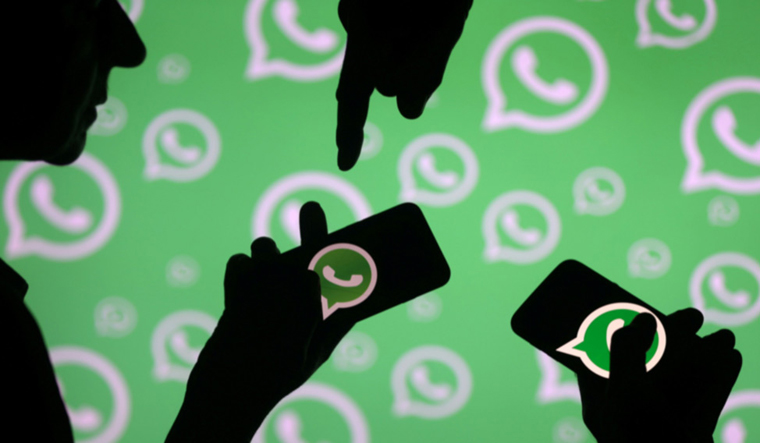What can WhatsApp do to ensure that fake and potentially harmful news do not maliciously spread through it? Will it comply with all the demands the Indian government is making?
These are some of the questions that will weigh in as the global messaging service company's (and a subsidiary of Facebook Inc) CEO Chris Daniels goes into a flurry of meetings with Indian government officials after his arrival in India on Wednesday. Daniels is accompanied by a high power delegation that includes the company's global policy head Christine Turner.
While the matter of potentially harmful fake news doing the rounds through the wildly popular messaging service is nothing new, the issue had become a pressing matter over the past few months after a spate of lynchings caused by information disseminated over WhatsApp. In particular, mob attacks in places as far-flung as Jharkhand and Assam on reported sightings of 'child kidnappers' had led to innocents being lynched to death.
The government had then asked the US-based company to put systems and tools into place to ensure that rumours and maliciously false information is not spread through its network, set up an office in India, and install local servers. It also asked the company to allow government agencies to access user messages if required.
In response, WhatsApp brought out advertisements in newspapers informing users cues on how to distinguish genuine and fake news, beside conducting workshops in places like Ranchi. It further implemented measures like limiting the number of people who can become members in a group (256) and the number of times a message can be forwarded (five). But the Indian government is not satisfied. Government access to messages being sent is a thorny issue as WhatsApp flaunts its 'end-to-end encryption' as a core value which it says cannot be compromised. Demand that the company set up a local office so that all laws and regulations of the land can be applicable to it has also not been done—a grievance officer was appointed in August for India, but the Indian-origin official Komal Lahiri continues to be based out of the US. India had demanded that the grievance officer be based within India.
This is Daniels' second visit to placate Indian officials in just two months. India is the app's biggest market, with more than 200 million out of India's estimated 300 million smartphone users accessing the app regularly to send messages and share information. That's one fifth of WhatsApp's one billion global users, making India its biggest market.
That obviously makes the stakes high for WhatsApp, especially considering the opening up of the Unified Payment Interface (UPI) system, which could be the next big thing in finance and shopping. Facebook Inc hopes to use WhatsApp's omnipresence in the Indian mobile market to get going with this feature which would help consumers send and receive money, pay for cabs and shopping and eventually even do bank transactions.
In fact, as the deadline for setting up payment gateways in India expired last week, WhatsApp was the only big company that claimed to have complied with the requirement of storing payment data in servers based in India. This, even as the three biggest electronic payment transaction entities Visa, Mastercard and American Express said they would need more time.
The localisation 'áchievement' would be something Daniels will tom-tom, even as he banks on the upcoming Indian elections for the government to not be too rigid towards the company. After all, just like what happened during the election campaign in Brazil this month, Daniels knows that the present dispensation in India would need to use these very tools in the same 'effective' way it was used to swing the electorate in its favour last time around.



